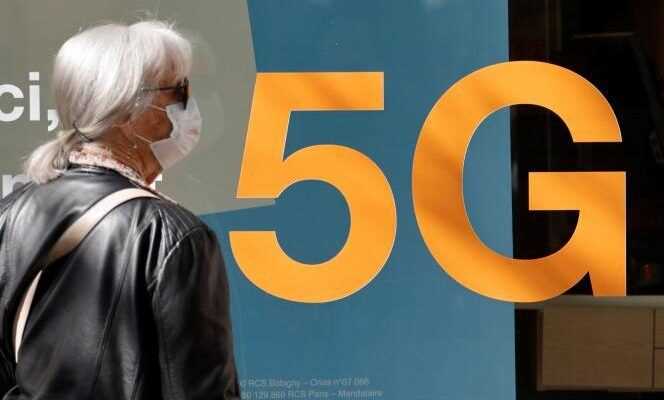The new generation of 5G mobile networks being deployed does not present “No new risks” for health, in view of the data currently available, estimated, Tuesday April 20, the National Health Security Agency (ANSES), in a much awaited notice on this controversial technology.
The deployment of this fifth generation of mobile, which began at the beginning of the year, sparked controversy, fueled by the words of President Emmanuel Macron who had compared the skeptics to “Amish” advocating a “Back to the oil lamp”.
Calls for a moratorium pending the opinion of ANSES, seized in early 2019 by the government, had nevertheless multiplied, some municipalities having even wanted, or even voted as in Lille, such measures for their territory.
The opinion therefore comes in a context that the agency itself qualifies as “Public controversy”, especially since ANSES had already noted in a preliminary report in January 2020 the lack of available scientific data.
Continue research
But based in particular on work carried out on the frequencies used for previous generations of telephony (700 MHz to 2.5 GHz) and which are also used for 5G, the agency estimates “Unlikely, at this stage, that the deployment of 5G in the frequency band around 3.5 GHz constitutes a new health risk”.
Regarding exposure to the 26 GHz band, also used for 5G but not yet allocated in France, ANSES considers that“At the present time, the data are not sufficient to conclude on the existence or not of health effects”.
The opinion therefore recommends continuing research on exposure to various wave frequencies and their possible health consequences.
In a joint press release, the ministers concerned (ecology, economy, health, digital) considered that the ANSES report “Confirms the government’s choices on the launch of 5G” and are committed to “Strengthen research efforts on (…) possible health effects “, especially on the 26 GHz band.
A multitude of possibilities
“Following the exhibition is extremely important”, emphasizes Olivier Merckel, head of the risk assessment unit related to physical agents at ANSES, especially since “We do not yet know what will be the new uses that users will seize”.
Because from almost instantaneous video downloads to vehicles and other connected objects, 5G and its increased power open up a multitude of new possibilities, some still to be invented.
It’s that “Innovation turning point” that President Macron had praised for refusing a possible moratorium, however also requested by the Citizen’s Convention for the climate, which he himself had convened, pending health and environmental studies.
The High Climate Council warned in December that 5G was “Likely to increase significantly” the carbon footprint of the digital sector, recommending to better assess the impact of future technological leaps before their implementation.
But capitalizing on the public’s usual enthusiasm for technological advances and after auctions which brought in nearly three billion euros to the State, the telecom operators embarked on the deployment as soon as the last legal obstacles were lifted at the end. of December.
“Staggering uncertainty”
The NGOs Agir pour l’Environnement and Priartem (association against the risks associated with electromagnetic technologies), which had challenged the deployment in court, also castigated on Tuesday once again the “Passage in force of the government without waiting for the expertises”. Especially since, for them, the ANSES report demonstrates the “Staggering uncertainty” on 5G, with “Many questions and few answers”.
Aware of this reproach, the agency concludes, moreover, its opinion by hoping that in the future such health studies be carried out. “Previously [au] deployment “ new technologies.
It also decided to put its opinion and the report of its experts in “Public consultation” for six weeks. The documents may possibly be completed following this consultation.
